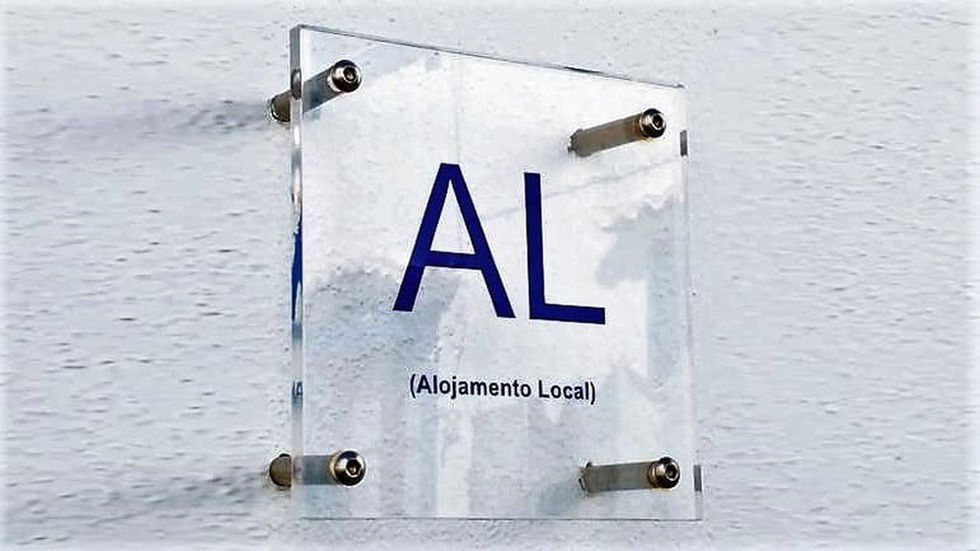The majority of Alojamento Local landlords refuse long-term leases.
- Adam
- Jun 28, 2023
- 3 min read
Updated: Jun 29, 2023

Most local accommodation (AL) owners refuse to place these units on the long-term rental market, if they have to give up the AL, preferring to use the house "only on vacation" or sell, according to data released today.
The conclusion results from a preliminary analysis of a survey carried out in June 2023 among economic agents, within the scope of a study on LA developed at NOVA SBE, which validated 1,820 responses from owners and managers of accommodation units.
Most respondents consider that, if they are unable to use their current accommodation as AL, following the new measures for the sector provided for in the More Housing Government program, the "most plausible" thing is to start using the house "only on vacation ", "as a lease to foreigners" or else sell the property.
"The option of renting the house to students or in long-term leases [contracts of three years or more] is only considered by less than 15% of the owners", stressed economist Pedro Brinca, one of the authors of the study, during a conference promoted today by the Local Accommodation Association in Portugal (ALEP).
Most respondents are sceptical about the Government's measures for the sector and consider that the Mais Habitação package will not be a good opportunity to make investments, admitting that it is very likely to have to reduce costs, close activity or cut future investments.
According to data released today, most owners or managers who responded to the survey are men (57%), of working age, with higher education than the national average (75% have higher education). More than half (51%) have only one LA and only 9% explore more than five LA.
In 76% of the cases, the enterprise is managed by the owner himself, who in 66% of the cases carries out the activity as a sole proprietorship.
Most ALs generate less than 20,000 euros a year for their owners, with less than 12,000 euros being generated in 46% of cases.
About 74% of AL's offer is available to tourists all year round and only 11% is available for booking less than six months a year.
AL revenues represent more than 60% of family budget revenues in only 39% of cases (including the 16% where they are the totality of family income).
According to the preliminary results of the survey, 62% of the owners invested in the rehabilitation of the property before the beginning of the operation, considering that in 22% of the cases, the buildings were in poor condition and in need of a lot of works and in another 22% of the cases the buildings they were vacant. Only 9% of the properties were new construction.
About 36% of the owners took out loans to pay for the property or its rehabilitation.
In relation to the regional concentration of developments, Lisbon represents 17% of the distribution of AL across the whole country and Porto 7%, with the remaining 76% distributed among other municipalities.
The authors point out that the majority of the total AL registered in the National Register of Local Accommodation (RNAL), made available by Turismo de Portugal, is held by "individuals" and only a part by companies, belonging, in general, to the person who carried out the registration, although there is also an important part in the leasing system (20%) and others (19%).
During today's presentation, preliminary data from the study 'Impact Assessment of Local Accommodation in Portugal', presented in May, developed by professors João Bernardo Duarte, Pedro Brinca and João Pedro Ferreira from Nova SBE, at the request of ALEP, were confirmed.
According to these data, overnight stays in AL establishments represent about 40% of total overnight stays in Portugal and tourists who in 2019 stayed in AL units spent more than eight billion euros in the Portuguese economy.
"Tourists staying in AL accommodation will be responsible for around 110,000 jobs. Of these, almost 75% are in sectors other than accommodation and correspond to the remaining expenses that tourists make while visiting the country", it underlined.
The Mais Habitação program includes measures such as the forced leasing of vacant houses, the suspension of new local accommodation licenses or the end of 'Golden Visas'.
One of the solutions proposed by the Government is incentives for renting, which include greater restrictions on local accommodation.
Thus, the new local accommodation licenses will be suspended until December 31, 2030, throughout the national territory, with the exception of around 200 municipalities and parishes in the interior, and Madeira and Azores Islands.
The Government's proposal also provides that registrations issued on the date of entry into force of the new rules will expire on December 31, 2030, being, thereafter, renewable for five years.
.png)



Comments